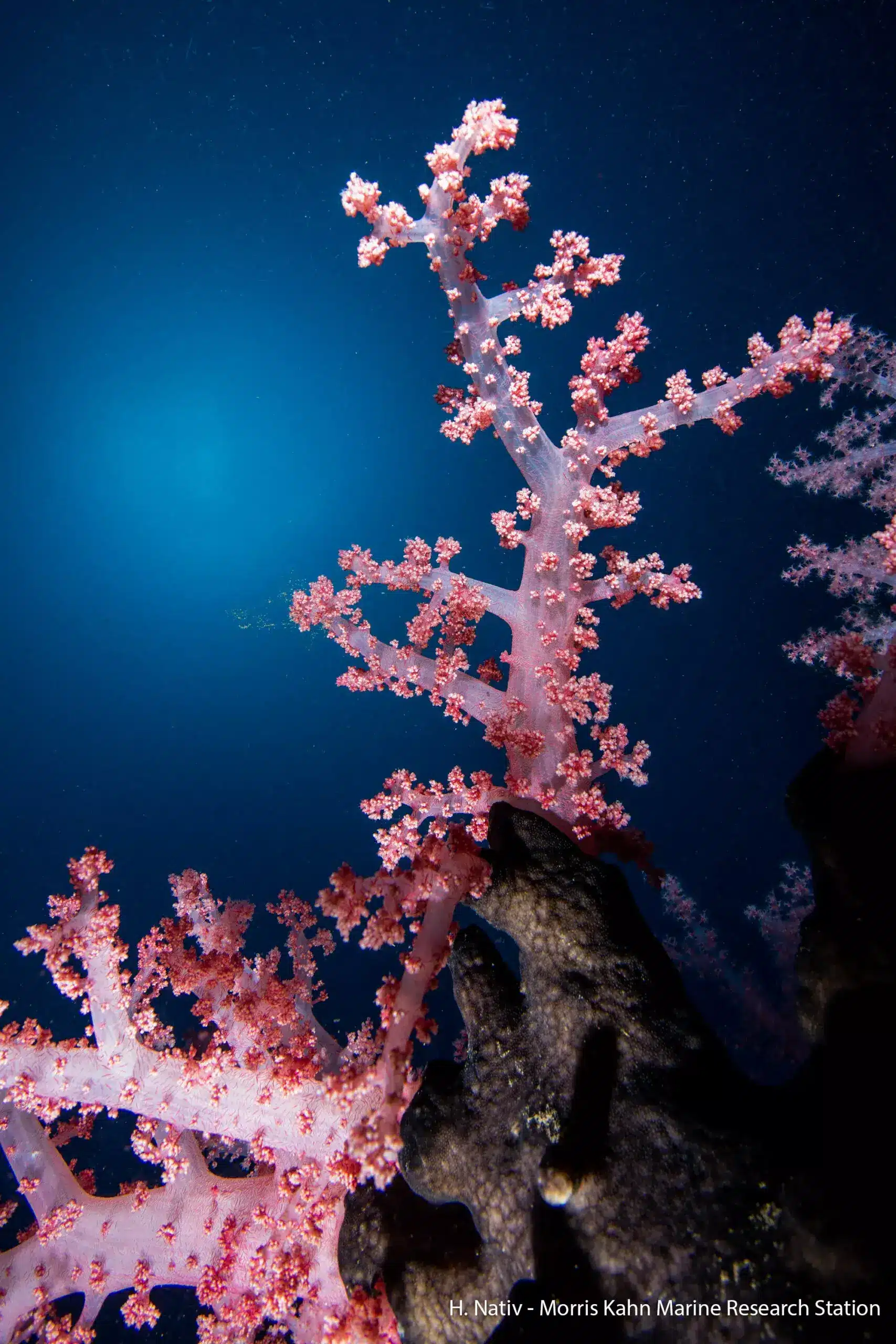Until now, the low temperatures of the Mediterranean water in winter have been a barrier to the arrival of tropical corals. The establishment of the Dendronaphtia we found indicates that at least last winter, the waters of the Mediterranean Sea were warmer than before

Another evidence of the climate crisis: soft corals of the Dendronaphtia species, which are common in the Eilat and Red Sea region, were found at a depth of 42 meters in the Mediterranean Sea, close to Kibbutz Sdot Yam. "Until now, the low temperatures of the Mediterranean water in winter have been a barrier to the arrival of tropical corals. The establishment of the Dendronaphtia we found indicates that at least last winter, the waters of the Mediterranean Sea were warmer than before. It is too early to say what the consequences of the establishment of the specific coral we found will be, but there is further evidence that the natural barriers between the Mediterranean and the Red Sea are disappearing due to climate change," said research student Hagai Nativ from the Charni School of Marine Sciences at the university.
During a routine survey dive, researchers at the Maurice Kahn Sea Research Station of the Charney School of Marine Sciences at the university were surprised to discover several corals that were suspected to be corals from the Hasmonaim family - corals that grow in tropical and warmer days, such as the Red Sea. After collecting samples and examining them with a scanning electron microscope and molecular methods, the researchers found that the corals found are soft corals of the genus Dendronaphtia (Dendronepthya sp.) which grow regularly in the Red Sea. According to the researchers, until today, the invasion of tropical corals into the Mediterranean Sea has been prevented, among other things, because of the low temperatures that the Mediterranean Sea reaches in winter. "Since this coral exists in a temperature range of 17 to about 30 degrees, its arrival from the Red Sea suggests that at least the last winter was warmer and the sea did not reach low temperatures, which allowed the corals to establish themselves at certain points along the coast," the researchers said.
Biological invasions disrupt natural ecosystems and can lead to major changes, such as local extinctions, and a decrease in water quality. According to the researchers, Dendronaphtia corals do not present, in themselves, special dangers, but it is known that they can change the habitats, add complexity to the system and even lead to a change in the current regime within the habitat where it grows. Additionally, since this coral is known for its ability to stick to surfaces and grow at a rate of several centimeters per month, it is expected to spread rapidly and become more common throughout the Mediterranean. "It is too early to know what changes, if any, will be caused by the establishment of Dendroneptia in the Mediterranean, but in a complex system like the ecosystem in the sea, any small change can start a chain that will end in a big change. For example, in the Red Sea this coral maintains a symbiosis with a type of crab - and if this crab invades the Mediterranean Sea and discovers layers of Dendronaphtia that are 'waiting' for it, its establishment can be very easy," said the researchers.
What is starting to look more and more certain is that natural barriers, such as sea temperature or the salinity level in the Suez Canal, are eroding. "The Mediterranean Sea is at a particularly high risk of biological invasions by additional species that until now have been blocked by high salinity in the Suez Canal or temperatures unsuitable for establishment in the Mediterranean Sea. The climate change that we are experiencing in recent times and in parallel with the expansion and deepening of the Suez Canal, create a suitable environment in the Mediterranean Sea for the movement and establishment of species from the Red Sea," said research student Nativ.
The extraordinary discovery was published in the journal Biology.
More of the topic in Hayadan:
- A medicine against cancer from a rare tree
- A genetic mutation was found that contributes to longevity in men
- A cloth dyed in crimson was identified - the colors of royal clothing from the time of David and Solomon 3,000 years ago
- Special bronze vessels were discovered in the archaeological excavations in Migdal - a 2000-year-old Jewish settlement on the Sea of Galilee
- The forecast: a continuous heat wave in Jerusalem, starting in 2038
